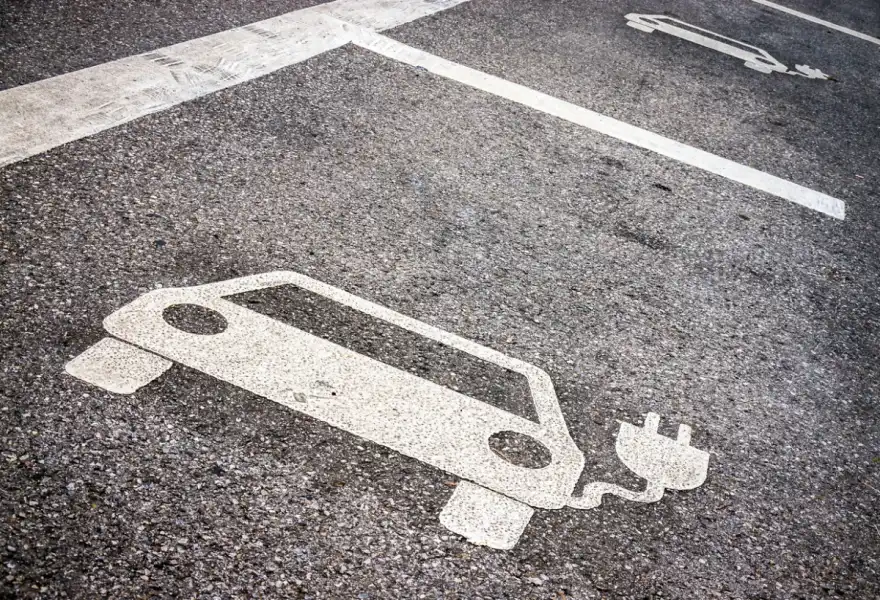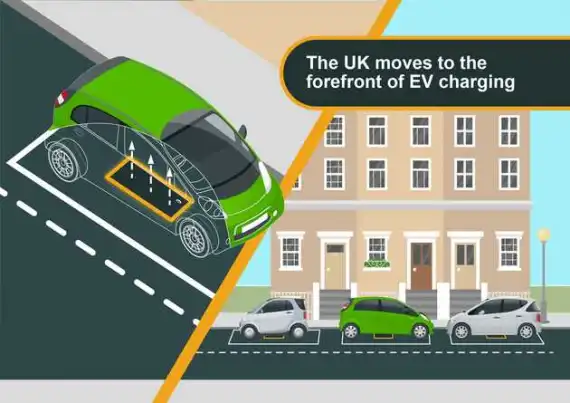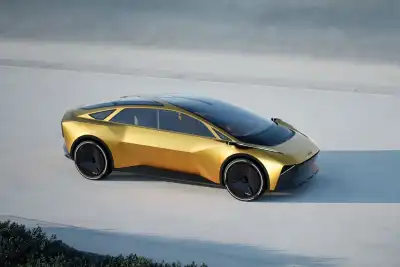
Boost for electric car drivers
New, wireless electric vehicle chargers are to be installed in London, the Midlands, and Scotland in 2020, Connected Kerb confirmed. This is potentially good news for motorists and the wider community. Why? Because wireless car chargers are easier to use, safer, and less visually intrusive than the wired equivalents.
How to use a wireless car charger
A wireless electric car charger (induction charger) is easy to use. Simply park in the designated spot, press any necessary buttons in your vehicle, and wait. Unlike a wired charger there is no need to:
- open a flap in the car’s bodywork to reveal a charge port
- connect a cable to the charger
- plug the other end of the cable into your vehicle

Image from Connected Kerb
The science (briefly)
Let us consider the science that makes a wireless electric car charger work. Buried in the ground is a transmitter pad that is connected to mains electricity. In other words, it is plugged in via a cable. Electric current flows from the mains electricity, into the transmitter pad, then throughout a coil of conductive wire. This trip turns the electrical current into a magnetic field.
The magnetic field then travels – through the air and without a physical connection – to a receiver in the vehicle when it is parked immediately above the transmitter pad. The magnetic field then becomes an electrical current which charges the car’s battery.

Image from Connected Kerb
Further advantages
A wireless electric vehicle charger has further benefits. For starters, there is no requirement to stretch a long, cumbersome electric cable from the charger across the pavement to your vehicle. This eliminates any risk of you – or perhaps a blind person – tripping over a cable and getting injured. You can also:
- save space in your car (no need to carry a long, thick cable)
- save time (no need to connect a cable)
- reduce the risk of vandalism/interference (no visible cable).
Furthermore, some people take issue with the amount of ‘street furniture’ which ‘clutters’ the nation’s towns and cities. Some, for example, say there are too many lights, signs, and road markings, etc. A traditional electric car charger can be prominent too. In contrast, a buried wireless charger is much less intrusive.
Wireless electric car charger boss has his say
Connected Kerb's Chief Executive Officer, Chris Pateman-Jones, suggested that the world is ready for wireless electric car charging. He said: ‘Vehicle manufacturers are increasingly including induction charging technology in their new models, but at present there are only a handful of induction-enabled electric vehicle charge points in the UK. We aim to change that’, he stated.



